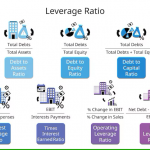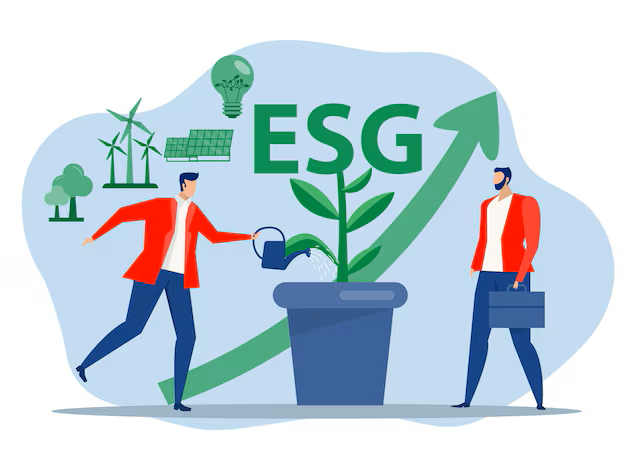Welcome to the world of ESG investing, where finance meets sustainability. Are you intrigued by the idea of aligning your investments with your values? ESG (Environmental, Social, and Governance) investing allows you to do just that. ESG investing goes beyond mere financial returns. It considers the impact of investments on the environment, society, and corporate governance practices. By focusing on companies that are committed to sustainable practices and ethical behavior, ESG investors seek to drive positive change while generating financial gains.
In this article, we will delve into the essential components of ESG investing and explore why it has gained significant momentum in recent years. We’ll uncover the ways in which ESG factors are evaluated and incorporated into investment decisions, as well as the potential benefits and challenges of adopting an ESG investment approach. Whether you’re a seasoned investor or just starting to dip your toes into the world of finance, understanding ESG investing is crucial for making informed decisions that align with your values. So, let’s explore the fascinating world of ESG investing together.
What is ESG?
ESG stands for Environmental, Social, and Governance, which are three critical factors used to evaluate the societal impact and sustainability practices of an investment in a company or business. The environmental aspect looks at how a company performs as a steward of nature. This includes how it manages risks and opportunities related to environmental challenges, such as climate change, resource depletion, waste, and pollution. Investors are increasingly examining these factors to gauge a company’s long-term viability and ethical standing.
Social criteria examine how it manages relationships with employees, suppliers, customers, and the communities where it operates. Companies with strong social practices may engage in fair labor practices, contribute positively to their communities, and uphold human rights standards. This aspect of ESG investing is vital, as it reflects a company’s commitment to social justice, equality, and community development. The governance aspect deals with a company’s leadership, executive pay, audits, internal controls, and shareholder rights. Good governance can prevent corporate scandals and promote ethical business practices.
Together, these three pillars form the foundation of ESG investing. They enable investors to assess not only the financial performance of a company but also its impact on society and the environment. By integrating ESG factors into their investment strategies, investors can align their financial goals with their personal values, fostering a more sustainable and equitable future.
The Importance of ESG Investing
The significance of ESG investing has grown tremendously over the past few years, driven largely by a shift in societal attitudes toward sustainability and ethical practices. Investors are increasingly recognizing that the traditional approach to investing, which primarily focuses on financial returns, is no longer sufficient. With growing awareness of global challenges like climate change, social inequality, and corporate governance issues, many investors are seeking to incorporate a broader set of criteria into their decision-making processes.
One of the primary reasons for the rise of ESG investing is the increasing evidence that companies with strong ESG practices often outperform their peers in the long run. Research has shown that businesses that prioritize environmental sustainability, social responsibility, and good governance tend to be more resilient and better positioned to adapt to changing market conditions. This can translate into strong financial performance and lower volatility, making ESG investments attractive not only for ethical reasons but also for financial returns.
Moreover, ESG investing resonates particularly well with younger generations, who are more likely to prioritize sustainability and social responsibility in their investment choices. Millennials and Gen Z investors are driving demand for ethical investment options, pushing financial institutions to offer more ESG-focused funds and products. This shift is not just a trend; it reflects a fundamental change in how individuals view their role as investors. By choosing to invest in companies that align with their values, these investors are making a statement about the kind of world they want to support.
ESG Investing Strategies
There are several strategies that investors can adopt when it comes to ESG investing. Each approach offers different ways to integrate ESG factors into investment decisions, depending on the investor’s objectives and values. One common strategy is negative screening, which involves excluding companies or sectors that do not meet certain ESG criteria. For instance, an investor may choose to avoid investing in fossil fuel companies, tobacco manufacturers, or firms with poor labor practices. This approach ensures that the investor’s portfolio aligns with their ethical values.
Another prevalent strategy is positive screening, where investors actively seek out companies with strong ESG performance. This could involve investing in firms that are leaders in renewable energy, social equity, or good governance practices. By focusing on companies that excel in these areas, investors not only support positive change but may also enhance their portfolio’s performance by capitalizing on growth sectors. Positive screening requires thorough research and analysis of potential investments, making it suitable for those who are willing to invest time and effort into their portfolios.
Impact investing is another strategy that has gained traction among ESG investors. This approach focuses on generating measurable social and environmental impacts alongside financial returns. Investors in this category often seek out opportunities in sectors like clean energy, affordable housing, or sustainable agriculture. Impact investors are typically motivated by a desire to make a difference in the world while achieving financial growth. By providing capital to companies that align with their values, impact investors play a crucial role in driving positive change across various industries.
ESG Investing Performance
As ESG investing has gained popularity, so has the scrutiny regarding its performance compared to traditional investment strategies. Many investors worry that prioritizing ESG factors might compromise financial returns. However, recent studies indicate that this is not necessarily the case. In fact, numerous analyses reveal that ESG investments can perform as well as, or even better than, their non-ESG counterparts. This performance is attributed to a variety of factors, including risk management, operational efficiency, and innovation.
Companies that embrace ESG principles tend to be more resilient and adaptable to market fluctuations. By focusing on sustainable practices, these companies often reduce costs associated with energy use, waste management, and compliance with regulations. This operational efficiency can lead to improved profit margins and overall financial performance. Furthermore, businesses that prioritize ESG factors may be better equipped to navigate reputational risks, regulatory changes, and shifting consumer preferences, which can further enhance their long-term viability.
Moreover, the growing demand for ESG investments has led to the emergence of a variety of ESG-focused funds and indices. Investors can now access a wide range of products designed to meet their ethical investment criteria while still achieving competitive returns. As more data becomes available, the investment community is increasingly recognizing the value of ESG factors in driving long-term performance. This shift is encouraging more investors to consider ESG investing not just as a moral choice, but as a smart investment strategy.
ESG Investing and Risk Management
Risk management is a crucial aspect of any investment strategy, and ESG factors play a significant role in identifying and mitigating risks. Companies that neglect environmental, social, and governance issues may face various risks that can adversely affect their financial performance. For example, firms that are not proactive about climate change may encounter regulatory fines, litigation, or reputational damage as society increasingly prioritizes sustainability. By considering ESG factors, investors can better assess the potential risks associated with their investments.
Incorporating ESG criteria into investment decisions helps investors identify companies that are more likely to manage risks effectively. For instance, organizations with strong governance practices are often better at navigating regulatory changes, maintaining ethical standards, and avoiding scandals. By investing in companies with robust governance structures, investors can reduce the likelihood of unexpected losses due to management failures or unethical behavior.
Additionally, social factors can also influence risk management. Companies that prioritize employee well-being, diversity, and community engagement are less likely to face labor disputes, strikes, or negative publicity. By investing in firms that uphold strong social values, investors can enhance their portfolios’ resilience against potential risks. Ultimately, integrating ESG factors into investment strategies promotes a more comprehensive risk management approach, which can lead to more stable and sustainable investment outcomes.
How to Incorporate ESG Investing in Your Portfolio
Incorporating ESG investing into your portfolio requires a thoughtful approach that aligns with your values and financial goals. The first step is to assess your investment objectives and determine the level of importance you place on ESG factors. Some investors may prioritize environmental issues, while others may focus on social or governance aspects. Defining your values will help you identify the types of companies or sectors you want to include in your portfolio.
The next step is to conduct thorough research on potential investments. This involves analyzing companies’ ESG performance through various resources, including ESG ratings, sustainability reports, and third-party research. Many financial institutions now provide ESG-focused funds and indices, making it easier for investors to find suitable investment options. Consider consulting with a financial advisor who specializes in ESG investing to help you navigate the available options and create a diversified portfolio that meets your objectives.
Finally, it’s essential to monitor your investments regularly. ESG factors are continually evolving, and companies’ practices can change over time. By staying informed about the latest developments in the companies you invest in, you can make informed decisions about whether to hold, sell, or adjust your positions. Engaging with your investments and remaining proactive will enable you to maintain a portfolio that reflects your values while also pursuing financial growth.
ESG Investing Trends and Opportunities
As ESG investing continues to gain momentum, several trends and opportunities are emerging that investors should be aware of. One significant trend is the increased transparency and reporting of ESG data. Companies are now under greater pressure to disclose their ESG practices, driven by regulatory requirements, investor demands, and public scrutiny. This increased transparency enables investors to make more informed decisions and hold companies accountable for their actions.
Another trend is the rise of thematic investing focused on specific ESG issues. Investors are increasingly directing their capital toward sectors that address pressing global challenges, such as climate change, gender equality, and sustainable agriculture. This thematic approach allows investors to channel their resources into areas they are passionate about while also seeking financial returns. By identifying and capitalizing on emerging trends, investors can position themselves advantageously within the rapidly evolving ESG landscape.
Lastly, the growth of technology and innovation in the ESG space presents new opportunities for investors. Companies that leverage technology to enhance their sustainability practices, such as those developing renewable energy solutions or creating software to track carbon emissions, are likely to see strong growth. Additionally, the rise of fintech platforms focused on sustainable investing is making it easier for individual investors to access ESG products. By staying informed about these trends, investors can identify opportunities that align with their values and contribute to a more sustainable future.
ESG Investing Challenges and Criticisms
Despite the growing popularity of ESG investing, it is not without its challenges and criticisms. One significant concern is the lack of standardized metrics for measuring ESG performance. With various ESG rating agencies using different methodologies, investors may find it challenging to compare companies accurately. This inconsistency can lead to confusion and potentially mislead investors about the true ESG performance of a company. The investment community is increasingly calling for better standardization and transparency in ESG reporting to address this issue.
Another criticism of ESG investing is the perception of “greenwashing,” where companies present themselves as more sustainable than they are in reality. Some organizations may engage in superficial efforts to improve their ESG image without making meaningful changes to their practices. This can mislead investors and undermine the credibility of ESG investing as a whole. To combat greenwashing, investors must conduct thorough due diligence and remain vigilant about the claims made by companies regarding their ESG initiatives.
Lastly, some argue that prioritizing ESG factors may compromise financial returns, particularly in certain sectors. Critics assert that focusing solely on ESG criteria could lead to missed investment opportunities, especially in industries that are essential for economic growth but may not have strong ESG ratings. It is crucial for investors to strike a balance between their ethical values and financial goals, ensuring that their investment strategies remain robust and diversified.
Conclusion: The Future of ESG Investing
The future of ESG investing looks promising, as more individuals and institutions recognize the importance of aligning their financial decisions with their values. The growing demand for sustainable investment options is driving innovation within the financial industry, leading to the development of new products and strategies. As awareness of global challenges continues to rise, ESG investing will likely become a mainstream practice rather than a niche approach.
Moreover, as the supply of ESG data and metrics improves, investors will have greater access to information that enables them to make informed decisions. This increased transparency will help build trust in the ESG investing space, attracting more capital to sustainable businesses and initiatives. As a result, companies that prioritize ESG factors will likely enjoy a competitive advantage in the market, leading to further investment and support.
Ultimately, ESG investing represents a powerful opportunity to drive positive change while pursuing financial growth. By integrating environmental, social, and governance considerations into investment strategies, investors can contribute to a more sustainable and equitable world. As we move forward, it is essential for investors to stay informed, remain engaged with their investments, and continue pushing for greater accountability and transparency in the corporate world. The future of ESG investing is bright—one that promises to align financial success with a commitment to creating a better planet for generations to come.






